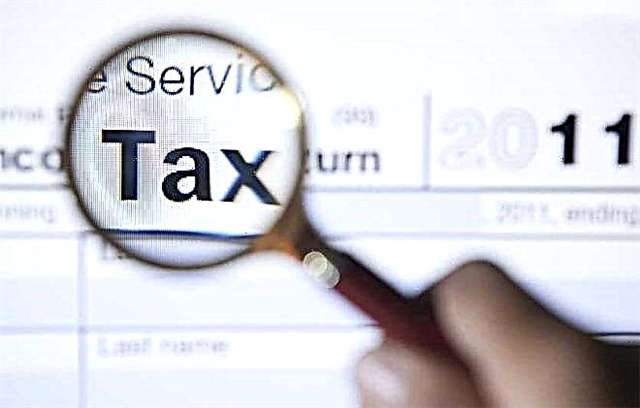The principles of taxation in Israel differ from those adopted in other countries, although they are based on the principle of residence. Income taxes are levied on a personal basis regardless of source of origin. Those who are not residents pay taxes in Israel on a territorial basis, that is, only obtained from Israeli sources. Let's figure out what types of taxes exist in Israel and what are the features of their payment in 2021.

Features of the Israeli tax system
Historically, Israel's tax system was formed on the principles of the British taxation model. Quite high taxes have been approved here, sometimes in aggregate in excess of 50 percent of the tax base. Nevertheless, paying taxes is considered the duty of every Israeli. In addition, for repatriates, who are in the majority in Israel, extensive tax breaks are provided, which we will discuss below.
Taxation in Israel is based on the principle of residence. At the same time, not only quantitative but also qualitative indicators are used to define a person as an Israeli resident.
So, in general cases, a resident is one who stays in Israel for 183 days a year or 30 days in the current year, which, together with the last two years, give a total of 425 days of stay.
If in 2021 a person does not meet the specified criteria, but wants to acquire a residence and pay “mas ahnasa” (personal income tax) in Israel, the state allows him to challenge the quantitative and apply the qualitative criterion - the center of life. In this case, family ties, the location of the taxpayer's personal property, the geography of economic interests, and so on are checked.
As in other countries, income recipients in Israel are required to file an annual tax return. About the procedure for declaring income later.
What are the taxes in Israel
Taxation of Israeli and Russian citizens who are Israeli residents is carried out according to a two-tier system: both state and municipal taxes operate in the country. The state includes all taxes on profits, customs duties, value added tax, tax on the sale of land, and so on.
"Arnona" belongs to the municipal ones. Not everyone knows what “arnona” is in Israel: it is a type of municipal tax that replaces the single tax on real estate. It finances the activities of local authorities.
In addition to territorial differentiation, Israeli taxes are traditionally divided into direct and indirect. Direct is considered to be levied on profits or capital gains, adjusted for the person's solvency. For example, the same income tax in Israel or some kind of property tax. Typically, such taxes usually take into account the personal characteristics of the taxpayer, such as marital status, age and health status.
Indirect taxes usually include charges that burden consumption or costs already incurred. A classic example of an indirect tax is VAT.
In addition, fees can be differentiated depending on the payer: they are paid by both individuals and legal entities.
Taxation of individuals
Taxes for individuals are determined by the composition of the property and the types of activities of the subjects. Recall that residents of Israel, as a general rule, pay taxes from both Israeli and foreign sources.
| Tax type | Bid | Note |
|---|---|---|
| Income tax | 10-50 % | Income tax in Israel is levied at a progressive rate within 7 steps, which are applied depending on the income level of the payer. |
| Dividend tax | 0.25 | For some state-approved legal entities that pay dividends, the tax rate is set at 15-20%. |
| Interest income tax | 0.25 | Interest income from investments in listed securities is taxed at a rate of 15%. |
| Royalty (income from the sale of the right to use intellectual property) | 0.265 | |
| Rental income tax | 31-50 % | A progressive scale is applied depending on the amount of income received. There are also preferential rates of 10% on the rent of a residential apartment in Israel. |
| Car tax | ≈ 92 % | Car tax in Israel depends on the value of the vehicle. |
| Arnona city tax | Set as a fixed amount by each municipality separately | It is paid as a derived tax rate for 1 m2 of housing and its area. For example, in Tel Aviv and Bat Yam it is 49 shekels, in Haifa 63 shekels and so on. |
| Dog tax | 338 shekels | Dog tax in Israel is levied exclusively on non-castrated pets. |
Taxation of legal entities
Companies are also tax payers. The types of taxes paid by enterprises depend on the type of their activity. Let's consider the most common ones.
| Tax type | Bid | Note |
|---|---|---|
| Corporate income tax | 0.23 | A preferential tax rate is applied to partners in partnerships, which is 15% of the profit of each partner. |
| VAT | 0.17 | For certain areas of activity, the VAT rate in Israel can be changed, for example, for real estate and tourism. |
| Land sales tax | 0.025 | + 1.2% is charged for the purchase of buildings on the ground |
| Insurance premiums | 0.125 | Paid to the employee's salary as a pension contribution |
No taxes are levied on companies engaged in agriculture.
Real estate taxes
Property taxes are primarily understood as property tax in Israel. The main tax levied on property owners is Arnona. Its size is set by the municipal authorities in the form of a flat rate in shekels per 1 m2 of housing per year.

The highest rate is in Jerusalem - 74 shekels / 1 m2 per year, in Ramat Gan - 64 shekels, in Haifa - 63 shekels. This tax is the main source of replenishment of local budgets.
Taxes on the sale of an apartment can be levied on both buyers and sellers. For example, when buying a home, if the transaction price is higher than 1,623,320 shekels, the buyer is charged “mas rehisha” in the amount of 3.5% of the cost. The tax is progressive and can reach 5% if the object is more expensive than 1,925,460 shekels, and even 10% - for home buyers more expensive than 1 6,558,150 shekels.
From sellers, if the cost of an apartment sold earlier than after 4 years of ownership exceeds the cost of its purchase, a “mass” tax is levied on profit gains. The calculation of the tax depends on many indicators and is carried out by a separate department of the tax service.
Another tax is the "Ashgabe Etel", the so-called tax on improvements. Charged from owners and long-term tenants of real estate who have made improvements that increase the value of the property. This can be reconstruction, and repair, and other improvements that significantly increase the cost of housing.
Payroll taxes
The vast majority of the working population pays payroll taxes in Israel. These primarily include the “mas ahnas” income tax, which is calculated monthly by the tax agent-employer.
The basic rate of personal income tax is 10% of the salary of 6.22 thousand shekels and increases as the salary rises.
Thus, for an amount exceeding 6.22 thousand shekels. and up to 8.92 thousand - 14%; for an amount exceeding 8.92 thousand and up to 14.32 thousand - 20%. The next steps are 31, 35, 48 and 50%, depending on the size of the salary.
In addition to income tax, employees pay insurance premiums in Bituach Leumi and health insurance premiums from their salaries. They can be charged in full or reduced (determined by the size of the salary).
So, the cumulatively reduced size of these contributions from the employee is 3.5% (+3.45% from the employer), and the full amount is 12% (+7.5% from the employer) of the salary. In addition to them, pension fund fees are levied in the amount of 6% of the salary (+ 12.5% from the employer).
Double taxation with Israel
Since Israeli residents pay taxes from sources around the world, this can lead to unjustified double taxation both in Israel and in the country of source of income. To avoid such a violation of the rights of Israelis, the state has entered into special agreements with many countries to avoid double taxation.

Among the signatories of the agreement on the avoidance of double taxation with Israel are the following states:
| Country | From what moment is it applied |
|---|---|
| Austria | January 1, 2019 |
| Ukraine | January 1, 2007 |
| Italy | January 1, 1999 |
| Estonia | January 1, 2010 |
| USA | January 1, 1995 |
| Belarus | January 1, 2004 |
| United Kingdom | January 4, 1961 |
| Georgia | January 1, 2012 |
| Germany | January 1, 2017 |
| Netherlands | January 4, 1970 |
| Hungary | January 1, 1993 |
| Greece | January 1, 1999 |
| Norway | April 1, 1965 |
| Spain | January 1, 2001 |
| Czech | January 1, 1995 |
| Russia | January 1, 2001 |
A complete list of countries that have signed an agreement with Israel can be found on the website of the Israeli Ministry of Finance.
Tax incentives for repatriates
During the first 10 years of residence after repatriation, Jewish immigrants are exempt from taxation on income received from foreign sources (real estate, securities, rent, etc.). In addition, other tax benefits are provided for repatriates, for example:
- discounts on personal income tax for the first 3 years of residence in accordance with the system of privileged units (3 units for the first 18 months, 2 units for the second year and 1 unit for the third year), amounting to NIS 2.58 thousand;
- exemption from income tax on foreign exchange savings for 20 years after repatriation;
- exemption from tax on pension savings;
- tax exemption for foreign owned companies.
In addition to repatriates, other categories of the population also have the right to tax benefits, including:
- parents with small children;
- low-income pensioners;
- certain categories of employees;
- loans for dismissed soldiers;
- persons with disabilities and others.
Tax payment procedure
Most Israeli residents who are employees are not required to pay income tax on their own: when it comes to wages, their tax agents are employers or other persons who pay them a permanent income. They withhold the amount of tax and monthly every 15th day they transfer it to the treasury.
For self-employed persons, income tax is calculated based on the annual income approved by the tax authorities on the submitted tax return. Tax payment is made only after the end of the tax period, taking into account the monthly advance payments made.
As for property taxes, they are also paid by property owners on their own within 60 days from the date of the transaction. Payment is allowed, including online. If later it turns out that the citizen has overpaid, the tax department will return part of the money.
Submitting a declaration
All payers of income tax are required to submit an annual personal income tax return to the tax service in the prescribed form. The official website of the tax service in Israel will help you find the required form and send the report.
Anyone whose annual earned income is lower than 643 thousand shekels is exempt from the obligation to file a tax return. Tax return procedures can also be found on the IRS website.
All declarants are required to submit their reports by April 30 of the year following the reporting year:
- The annual report is submitted in form 1301 in electronic form.
- To fill it out, you can use the tips on the site.
- The tax will be calculated based on the entered data.
- After that, the declaration is printed out and handed over to the tax expert along with documents and attachments.
- After a final check by the tax authority, the declarant makes an additional tax payment (if necessary).
VAT refund for foreigners
As in many other countries, Israel has a tax-free system - the return of VAT amounts to foreign tourists when exporting purchases outside the country. Moreover, VAT is not included in the rental of transport and guide services, there is no VAT in Israel when booking a hotel and when staying in a hostel, when organizing excursions and meals organized by a travel company or in hotels. VAT cannot be refunded for these services, since it is not added to their cost.

All other purchases exported abroad and made in stores with a special mark (TAX REFUND) allow tax-free tax refund.
Full VAT can be refunded only on a purchase amount of about $ 100. The higher the cost, the lower the percentage of return. If we talk about how much tax-free they start to pay in Israel, then usually it is also $ 100: making a refund at a lesser amount has no practical sense. So, for a purchase worth up to $ 100-150, 15-17% will be returned, up to $ 250 -13%, and so on.
When buying, in addition to the receipt, the buyer will need a special store form, which, together with the goods, will have to be presented at the border when leaving. If there is a TAX FREE sign on the store, it means that VAT has already been deducted and it will not be possible to return it.
Please note that there is even a VAT refund for medical services in Israel: only one company, Change Place, draws it up in practice; make sure the hospital has a contract with her.
Duty free
After shopping at the duty free at Ben Gurion Airport, tourists and visitors to Israel will not receive a VAT refund, as it is not included in the price.
Punishment for tax evasion in Israel
Tax offenses are severely punished in Israel. For example, violation of tax reporting entails a fine of 1 million shekels. Failure to pay taxes in the amount of 1 million shekels per year or 2.5 million shekels in 4 years is recognized as a crime, for which you can get up to 10 years in prison.
Conclusion
Israel has a complex tax system based on the European model. Income tax is levied at a progressive rate up to 50% of the amount of income. Real estate is subject to both direct ownership taxes and fees from buyers and sellers. Large-scale tax evasion is punishable by a prison sentence.











